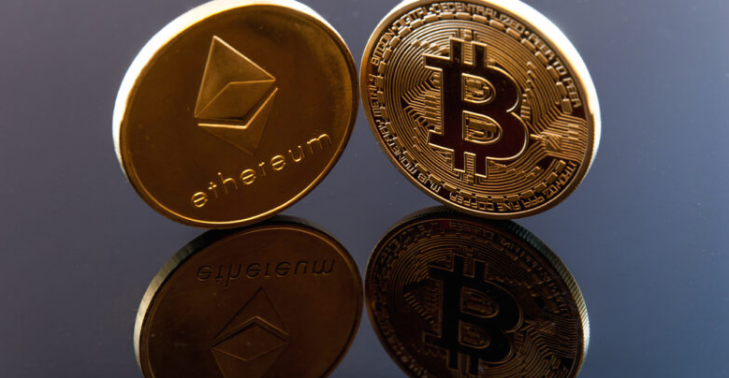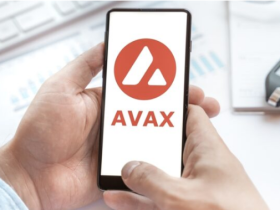Introduction
Cryptocurrency is something that everyone who uses the internet and social media sites has heard of. It’s not uncommon for people who invested in digital tokens to have financial success tales circulate online. Fears about security and control over bitcoin reserves are the main reason many people stay away from the cryptocurrency market, despite its huge financial rewards, It is essential to have the awareness that those individuals who are able to create a respectable life from investing in cryptocurrencies are those who first put in the effort to learn about the underlying technology and conduct extensive study on it. It is possible for anyone with a bit of spare time to learn how to keep their cryptocurrency transactions safe at every level and maintain complete control over their digital assets. This post is for you if you’re thinking about investing in cryptocurrencies and want to know how to keep your funds safe.What Is Cryptocurrency?
Bitcoin and other cryptocurrencies cannot be held or exchanged in the same way that paper money can. With the use of blockchain technology, which enables the creation of a digital ledger of all financial transactions, cryptocurrencies have emerged as a new type of currency. With blockchain and cryptocurrency, there is no need for a central authority to keep track of or control their transactions. Cryptocurrencies are non-tangible, hence they exist in encrypted code form. Coins and tokens cannot be stored in a bank account or box like paper currency. In order to trade and hold cryptocurrencies, investors must first open an internet account. It’s like a digital record of your bitcoin transaction that can’t be edited or altered.How to Safeguard Cryptocurrencies?
Investing in cryptocurrencies can only be profitable if the investor buys and sells them multiple times. Consider the entire life cycle of your coin and make sure it is safe at all times.To buy or to sell
Making a transaction is the first step in beginning cryptocurrency trading. There are numerous cryptocurrency exchanges that allow consumers to buy cryptocurrencies. Digital tokens are traded on cryptocurrency exchanges, which are similar to stock exchanges for digital tokens. Different cryptocurrencies are listed on these platforms, and buyers can select from a variety of them. According to Investopedia.com, Coinbase, Binance, Crypto.com, Gemini, and BitMart are the most popular exchange platforms for cryptocurrencies. The same platforms can also be used to sell your cryptocurrency.. It’s advisable to do your homework, study reviews, and run a financial audit on any cryptocurrency exchange before you invest any of your hard-earned funds there. To categorize the various sorts of bitcoin exchanges, here are a few examples:Cryptocurrency Exchanges that are centralized
A federal financial authority has registered a centralized cryptocurrency exchange. Several countries prohibit bitcoin exchanges from operating without a state-issued license or certification. Regulated cryptocurrency exchanges such as Coinbase and Binance are preferred by many investors because their financial security is protected by governmental regulators.Cryptocurrency exchange security on regulated platforms
Regulated cryptocurrency exchanges are required to conduct KYC and AML security checks. KYC stands for “Know Your Customer,” and it lets the cryptocurrency exchange store information about each investor, like their real name, active phone number, email address, and home address. In this way, malicious actors are discouraged from joining the platform using false identities. ALSO READ What Exactly Is Ankr (ANKR), And How Does It Operate? What Exactly Is Ankr (ANKR), And How Does It Operate? CFTC and SEC Chairs Discuss Cryptocurrency Regulation in ISDA Meeting To prevent criminals from using any cryptocurrency exchange for unlawful activities, AML stands for anti-money laundering protection. In addition to custodial wallets, most cryptocurrency exchanges also offer the ability for investors to store their bitcoin balances in these wallets. A crypto wallet’s seed phrase, password, or other encryption key must be remembered and protected if you want to keep your cash safe.Cryptocurrency Exchanges Without Centralization
A decentralized crypto exchange, or DEX, is a platform that works without the oversight of a private or public regulator. To make sure your money is safe on a DEX, you must first perform a thorough audit of the project’s finances and technical aspects. Consult with a reputable financial auditing firm or crypto broker, or read online reviews from other customers. You should steer clear of decentralized exchanges (DEXs) with low transaction volumes and little liquidity. To execute bitcoin transactions with each other, traders use peer-to-peer or P2P networks. Using P2P networks that require both buyers and sellers to undergo KYC verification is the best way to ensure that you aren’t dealing with scammers. For P2P transactions, escrow accounts verify financial contracts on behalf of both parties for every sale or purchase.Money in a Bank
It is possible to store cryptocurrency alongside fiat currency in some banks around the world. Many people, on the other hand, are averse to keeping their funds in banks because doing so goes against the blockchain’s financial privacy ideology. Third-party custodial service providers are typically used by banks to provide crypto storage options. Banks also provide financial protection for crypto holders who are accredited.Storing
Every cryptocurrency investor needs a safe place to store their crypto tokens while they are trading. The various storage solutions for cryptocurrencies may be broken down into two categories: the type of coin and the way it is traded.A Guide to Cryptocurrency Account Security
There is no way for a person to acquire, trade, or hold cryptocurrency reserves without an online account. Cryptocurrency reserves can be guaranteed to be safe if a user takes care of their crypto account. There are a number of ways to accomplish this:Research
A lack of awareness is the primary cause of people losing cryptocurrency to scams and hacking attempts. Investors who are new to the market or lack a lot of experience are ideal targets for threat actors since it is easy for them to confuse and target them. As a result, before utilizing any centralized, DEX, P2P, or crypto storage services, make sure you are well-versed in their inner workings. Research tools include customer reviews, social media presence, community forums, and financial and technical audits.Using a Unique Password
If a hacker can guess or crack your crypto account password, they can gain access to your bitcoin reserve. Choosing a password that includes both alphanumeric and unique characters is essential to ensuring the password is as safe as possible. The clipboard or browser on a mobile device is not the most secure place to keep a password, so investors can use a password management program to store it safely.Two-Factor Authentication
For every new login, the procedure of 2-Factor authentication adds a two-layer security check. You should look for a crypto trading platform that allows you to establish two-factor verification using your active email and cell phone number. Hackers can’t access your account without the unique code issued to your mobile phone number in the event that they manage to get their hands on your password.The Secret Code
Every cryptocurrency exchange also gives its users a separate account to hold or store their cryptocurrency. Private keys are an additional layer of password protection for storage accounts or crypto wallets because of the unique nature of cryptocurrency. This private key is required whenever an investor tries to withdraw cryptocurrency from their wallet.[rb_related title=”More Read” style=”light” total=”4″]
A private key is a very long string of numbers, letters, and characters that is extremely difficult to decipher by unauthorized parties. This private key can be used by investors to create a public address for sending and receiving cryptocurrency. People are able to lock themselves out of their accounts when they forget to safely save their private keys. Put the private key in a safe location that is out of the reach of hackers, but is also convenient for regular use.Word of the Day
In order to protect your private key, use a Seed Phrase as an additional layer of security. Crypto wallets now employ HD or hierarchical deterministic wallets due to an increase in hacking attempts. To put it another way, you can have multiple private keys for the same wallet. A Seed Phrase is a supplementary password that HD wallets can use to safeguard the zillions of private keys they can generate. Every human being can understand a seed Phrase, which is a collection of random words. Using a seed phrase, a user can quickly and easily generate a new private key for their cryptocurrency wallet. The seed phrase should be memorized and stored in a secure location. You don’t have to worry about forgetting your seed phrase and private keys if you use a password management program.Cryptocurrency Storage: Different Types
It’s not just cryptocurrency exchanges and built-in crypto custodial wallets where you can get your hands on cryptocurrencies these days. There are a variety of ways to make money with cryptocurrencies, and traders routinely transfer their cryptocurrency reserves across platforms. Listed here are some of the most popular bitcoin storage solutions, as well as pertinent security details:Cryptocurrency Safekeeping
All platforms and programs that allow users to remain connected to the internet while using a cryptocurrency wallet are known as online cryptocurrency wallets. The advantage of using an online crypto wallet is that it eliminates the need to move money around when selling or buying cryptocurrency. Online wallets, on the other hand, are a more attractive target for cybercriminals. An online wallet’s security can be improved by using anti-virus software and virtual private networks (VPNs). Using an offline crypto wallet, investors may keep their crypto assets safe and secure even if they don’t have access to the internet. When using an offline wallet, it is usually impossible to make a crypto transaction. There is some debate as to whether or not offline wallets are better protected than those that may be used online. The usage of offline wallets provided by verified service providers is always recommended for investors.Apps for Desktop and Mobile Devices
On their own computers or mobile phones is where many people choose to store their cryptocurrency holdings. It is possible to store and access your Bitcoin reserves and transaction history across many devices using these programs. Installing a legitimate anti-virus solution on your desktop or mobile computer can help investors protect their cryptographic wallets from unauthorized access.Extensions for web browsers and websites
Many browsers now enable cryptocurrency custodial services, as cryptocurrency trading grows in popularity. On the other hand, some users with limited storage space prefer to save their bitcoin reserves on website accounts supplied by various cryptocurrency organizations. Trusting any browser extension or website that provides storage space for your cryptocurrency reserves is not a wise idea at all times. Fake advertisements and pop-ups are frequently used by scammers to lure in unsuspecting investors. It is important to use a safe and trusted crypto wallet, as well as add web site scrutiny plugins to your browser to block dubious websites.Services of a Third-Party Custodian
There are a number of crypto organizations that don’t focus on trading or buying cryptocurrencies, but rather on allowing consumers to store their existing cryptocurrency. To provide crypto payment choices, some of these cryptocurrency companies may collaborate with banks, financial institutions, retailers, and other financial institutions. Since commercial organizations formally vet third-party software, they are generally deemed safer. It’s important for investors to familiarize themselves with the policies and service conditions of these third-party firms.Combination of hardware and software
Users are able to store their bitcoin holdings in a safe environment by using hardware wallets, which are electronic storage devices. Hardware wallets are becoming increasingly popular. There are certain hardware wallets that allow users to access their bitcoins both online and offline, while there are others that are strictly for offline use. You should only get your hardware wallet from a reputable distributor or manufacturer who can prove their legitimacy. A cryptocurrency wallet is a sort of software wallet that allows users to keep their bitcoin reserves. Compared to hardware wallets, software wallets have a higher risk of being hacked. Before beginning to use these wallets, investors who have any reservations can get in touch with customer care and inquire about audit results.Financial institutions and banks
For the sake of retaining their clients, centralized financial institutions are eager to include bitcoin functionality in their systems. Cryptocurrency can be used to pay for goods and services on websites like VISA and MasterCard. Some governments, meantime, allow certain banking institutions to offer bitcoin storage facilities to their current customers. Many investors are looking for alternatives to well-known commercial giants because of exorbitant transaction costs and a lack of financial privacy.The act of betting on pools
Staking pools make it possible for investors to concentrate their cryptocurrency holdings in one location while still generating rewards on a regular basis. Staking Pools are like savings accounts for PoS token holders, allowing them to put their tokens up as collateral and receive interest on the money they put in. Node validators can also be selected by the PoS leveraging algorithm according on stake time and volume. Your bitcoin holdings can be placed in a Staking Pool for the purpose of generating income.Wallets that are hot or cold
The term “hot wallet” refers to any cryptocurrency wallet that is capable of being connected to the internet. For investors, the adoption of hot wallets with additional layers of cyber security software can reduce the amount of time and effort required. Cold Wallets, on the other hand, are a type of cryptocurrency wallet that keeps the user’s crypto assets off the internet and out of the cloud. The use of QR codes as a substitute for private keys in cold wallets has been mostly abandoned due to security concerns. Hardware wallets are now the most prevalent method of cold wallet storage.Comparing the two types of wallets
To put it another way, a non-custodial wallet is a crypto storage account where the user retains full control of their private keys. Custodial wallets, on the other hand, do not provide investors full control over their cryptocurrency funds. In the majority of instances, cryptocurrency exchanges and other service providers merely give account log-in passwords and preserve private keys with the core developers of the coin. While these solutions boost overall network security, investors have only a limited amount of control over their cryptocurrency holdings.the pool of liquids
One of the benefits of using a Liquidity Pool is that it helps to make a bitcoin exchange more efficient. Users of cryptocurrencies may save their funds in one place thanks to smart contracts built into blockchain technology. Investing in a liquidity pool is a popular way for bitcoin investors to receive returns on their capital. Because the pool’s core developers are responsible for guaranteeing the pool’s safety, a cryptocurrency pool is often more secure. An additional revenue stream can be generated by employing services like Uniswap, Pancake Swapping and DYdX3, which provide investors with access to more than one pool of potential investors. Investors should also investigate the provider’s history before using any swap or liquidity pool to be sure there haven’t been any successful hack attempts in the past.Insurance for cryptocurrency
Applying for cryptocurrency insurance can give an extra layer of protection to all of your digital transactions. Before signing the contract, it’s a good idea to contact a law firm to read and understand the terms and circumstances of your crypto insurance policy. Insurance policies are increasingly being offered by financial risk reduction firms in order to provide investors with some level of protection. These are just some of the situations in which cryptocurrency insurance can come in handy:- Cryptocurrency trading losses
- Malware or Ransomware attacks might lead to loss
- Conspirators stealing your cryptocurrencies











Leave a Reply